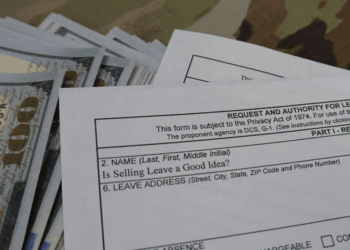Getting the best insurance rates can save you big money in the long run. Think about it. When will you no longer need home and auto insurance? Probably never.
A better monthly rate of even a few dollars a month can add up over the course of your lifetime. Let’s talk through some practical tips to help you get the best rates on auto, homeowner’s, and even life insurance.
The basic point of insurance
Simply put, insurance allows you to pay a company to assume some type of risk on your behalf. The insurance company’s job is to ensure (pun intended) that they collect enough money from their customers to pay out all claims and turn a profit. Your job is to avoid filing a claim and pay the lowest rates possible.
Know what coverage you need
The first thing you need to know is exactly what coverage you really need. There are all kinds of extra insurance add-ons (called riders) to consider too. Many of these are helpful, but you probably don’t need the maximum offered for everything available.
If you have a healthy emergency fund, you can probably “self-insure” for many smaller mishaps. For instance, if you have an old computer and the money to buy a new one, an electronics coverage rider on your renter’s insurance might not be necessary.
Lifestyle factors and your personal situation
You’ll also need to consider your current assets, income, and lifestyle. For life insurance needs, factor in everyone dependent on you and your spouse, if you’re married. It’s also important to think through your own tolerance for risk. Just because you’re OK with taking risks doesn’t mean you can afford to take risks on your family’s behalf.
Be sure you understand policy terms
Pay close attention to everything in your policy documents. There should be no question about your premiums, when and how insurance will pay, deductible amounts, and any disqualifying conditions. It’s also important to understand if any other insurance you have, such as TRICARE or Servicemember Group Life Insurance (SGLI), will affect what the insurance company will cover.
Comparing apples to apples
It’s important to compare insurance policies with similar coverage amounts. For instance, one insurance quote might have a lower monthly premium, but your deductible may be higher, the maximum coverage per claim could be different, or there may be limits on when you can make a claim.
Negotiating auto insurance rates
There are many companies to choose from when it comes to auto insurance. They’re not all created equal. Regardless, you want to take your time and compare at least a few options. It’s probably a good idea to start with companies you already know and trust, and then compare their rates with those of other reputable companies.
For military personnel heading overseas, your options might be limited. Be sure to ask about typical insurance rates before you ship your car or truck overseas.
Online deal finder tools
Be cautious about online services that look for you. You might find the best deal, but the fine print usually opts you into receiving phone calls, emails, and mail offers. You could inadvertently set off a “spam bomb” on yourself.
Leverage all available discounts
There are many different discounts, including those for military service, good drivers, bundling, multi-car, student, and many others. You can even get some discounts from other memberships you may have, like AARP or veteran service organizations.
Remember to also check with local insurance agents and brokers too. You might be surprised at what they can find for you.
Payment interval discounts
You might be able to save money by paying quarterly or annually. Just remember the payment is coming and save some cash away for it. You can easily set up an automatic transfer into a savings account just for this purpose.
Maintain a good credit score
Although insurance companies don’t use your credit score directly, most auto insurance companies will use your payment history to create an “insurance score” to help determine your rate. Insurance companies have found that people with a better credit score are less likely to get into accidents and/or file a claim. This isn’t allowed in some states, so it may not apply where you’re stationed.
Adjust your deductibles
You might be able to raise your deductible and lower your premium. However, you need to make sure you have cash on hand or keep a healthy emergency fund. It’ll likely take a year or more before the lower premium works out in your favor.
Understand the benefits you already have
It’s very important for you to fully understand what benefits you might already have from serving in the military. This can be especially true for life insurance. Many service members don’t understand all the coverage they already have.
For instance, even though it’s not technically insurance, the Survivor Benefit Plan automatically covers active-duty members (and some reserve component members). This reduces the amount of your income you’d need to replace with life insurance.
Read the fine print
The bottom line is always reading the fine print and ensure you understand what you’re paying for. It’s OK to take your time and read through things. If you’re unsure, see if you can get the local legal assistance office to look over major contracts. Regardless, you don’t want to switch insurance companies or drop coverages and accidentally create a headache down the line.









































